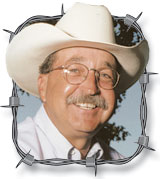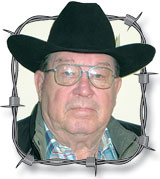 Twenty-one years ago, a few days before my father passed away, I told him that I had some big news to tell him. He was lying in bed, weakened from his battle with cancer, when I sat beside him and told him that I was going to quit my job as a university professor at the end of the school year, and pursue farming as my full-time career.
Twenty-one years ago, a few days before my father passed away, I told him that I had some big news to tell him. He was lying in bed, weakened from his battle with cancer, when I sat beside him and told him that I was going to quit my job as a university professor at the end of the school year, and pursue farming as my full-time career.
After an awkwardly long pause, Dad asked, “How much money do you make?”
I told him, and I was fairly certain the amount was substantially more than he ever made in the best year of his 70-plus years of farming.
“Hmmm,” he replied. “And don’t you get off every summer?”
“Yes, sir,” I said.
“And don’t you get about a month off for Christmas and another week off for spring break?”
I began to see a pattern as I answered, “Yes, sir. That’s about right.”
“They still pay your insurance and have a great retirement system?”
“Yes, Dad, it’s a great job and I like the people I work with and really enjoy the students, but you know I’ve always wanted to make my living from farming.”
“Well, Son,” he answered quietly as he grabbed my arm and weakly stated, “If that’s what you really want to do…you’re crazier than a pet coon.”
I was reminded of that conversation last Saturday night when my youngest son came home for a visit. Zach has worked the past two years for a large corporation as a computer software developer and, based on his evaluations, raises and bonuses, he has been very successful. So, I was a little shocked when he informed his mother and me that he had submitted his notice to leave the company at the end of the month.
“Oh, my gosh,” I said with astonishment. “How much money do you make per year?”
I assumed he made good money, but even I was shocked when he told me the exact amount. Needless to say, it was quite a bit more than I ever earned as a teacher and a whole lot more than I ever earned in a year of farming.
“And, don’t you have good benefits with insurance and retirement?”
“Oh, sure,” he answered. “Plus, they offered me a big increase in my pay if I would stay on.”
With worry in my voice, I asked, “What are you going to do for a living?”
Confidently, he replied, “I’m going to design software, but I’m going to start my own firm and write programming that I really love to do. I think I can market it and make a decent living doing what I love – kinda like you and farming.”
I hate it when my own kids throw logic in my face.
The 21-year-old conversation between my dad and me came racing back into my mind before I responded. “Well, son, if that’s what you really want to do, you’re as crazy as…your father.”






